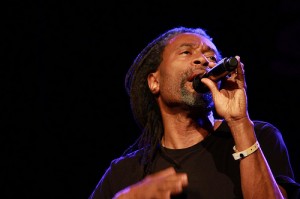Jazz is America’s music. It roots are in America. Two things I always liked about jazz. One; the swing rhythm, identifiable in the music of Benny Goodman, Count Basie, and many others, always gave me a high. Two; jazz has long been associated with social justice. That sold it for me!
Earlier in my adult life, I worked hard trying to better myself through jazz. I never got to be much of a player; too impatient, and never fully mastered the fundamentals. Yet, I learned something from my jazz experience, and now I’m seeing opportunities to adapt those experiences, in my work as a mediator.
Jazz has its traditions. Here’s 5 ways people have traditionally learnt the craft of jazz playing, and how they can be adapted to the mediation world (or other facilitative roles):
1. Respect the family tree
Today’s jazz evolved from earlier traditions; from slaves singing work songs in the fields, to the New Orleans of Louis Armstrong, through the swing and bebop eras of big bands and Charlie Parker, and up to today’s many variants. (see it all chronicled in Ken Burns amazing PBS documentary series/DVD, Jazz). The legacy of jazz is acknowledged and appreciated, in conversation, and practice.
Mediator training: Appreciate and learn the roots of mediation as a craft. Viewing and discussing the Mediate.com video library should be required of any mediation training program. Make experiential learning of the different mediation styles a foundational training component.
2. Transcribe recordings
Listening and transcribing musical performances to memory and/or paper, and replicating on your own instrument, is a time honoured jazz tradition, demanding listening, patience, and perseverance.
Mediator training: In the age of social media, there is many opportunities to record (e.g., video, podcast) mediation in ways that improve the learning experience, and lead to insight. John Gottman became an international expert on human relationships through his longitudinal, nuanced, audio/video analysis of married couples. Why can’t mediators leverage today’s tools to transcribe, analyze real-life mediations? (assuming any confidentiality concerns can be addressed) What about becoming your own Chief Listening Officer.
3. Learn in all 12 keys
Jazz practitioners learn songs and musical structures in all 12 keys, as a way to gain familiarity with their chosen instrument, and to fully internalize the music.
Mediator training: Learn all the mediation styles; transformational, healing (e.g., victim and offender), problem solving (most common)… Get exposed to spectrum of mediation; in-person, through online channels, attending workshops, master classes, conferences, reading books. Then, adapt and internalize that which makes sense to you.
4. Learn patterns
A basic jazz improvisatory skill is learning musical patterns, and judiciously applying those patterns in your playing. The Blues were the foundation. Swing, behop, post-bop, contemporary… followed. Musical patterns carry over. Learning the patterns expands the contexts in which one can participate and perform. In a similar vein, snippets of songs, musical quotes, are fodder for the improviser.
Mediator training: Knowledge banks, question banks, rules of thumb, and other best practices can serve as repositories of patterns, of what works in a mediation. Identifying, recording, and applying patterns, to the appropriate mediation context, is a skill worth developing, individually and collectively.
5. Take a chance
Improvisation is a learned skill. In traditional jazz, becoming a good improviser involves first getting the fundamentals (melodies, rhythms, scales, harmonies, structures) internalized, and then letting go, risking, and creating something new, comforted in the knowledge that the aim of learning is to integrate thinking and doing, that it’s safe to fail, and structure + creativity = innovation. Jazz is very much an experiential craft, learning by doing.
Mediator training: Mediation is more art than science (in my humble opinion). There has been a lot of good work done in teaching creativity and improvisatory skills to mediators (as I wrote in Yes, and). Yet, recent books I’ve read, authored by artists in business, such as Orchestrating Collaboration at Work or The Collaborative Habit, or after discovering the diverse ways teams and leaders can be innovative (documented in my posts here and here), I know we’ve only scratched the surface potential of mediator creativity training and risk taking.
What’s your experience and insight?
Which of these jazz-type techniques were you exposed to in your mediation training? If you’re a trainer now, which of these techniques do you use? Other thoughts on all this?
If you enjoyed this post, please consider leaving a comment or subscribing to my blog. Thanks, Ben.
photo credit: erinc salor


Ben, thanks for mentioning my book “Orchestrating Collaboration at Work” I enjoyed reading your post, and am happy mediators are learning from the arts. Several mediators in BC have told me they find the activities in Orchestrating Collaboration at Work very useful, no doubt because the arts put people on a level playing field outside their “timeline” and sets the stage for heartfelt conversations.
Hi Linda. Glad you enjoyed the post. Your book is so interesting. I wish I’d discovered and adapted, years ago, some of the many creative facilitation exercises your book outlines. There’s many fields, including mediation, that would benefit from a bit more right-brain thinking.
Thanks for honoring American jazz. I agree that delving deep into tradition is good for us.
Peace be with you.
Don’t know much about Jazz but mediation is quite an art, very interesting to study!
Anne – Thanks. Nice to see the jazz part of my post also resonated with you.
Priyanka – Anytime you’re dealing with people’s emotions, right brain skills (e.g., arts-oriented) definitely come into play, which is one reason mediation so interesting. Enjoy your mediation/art study (if that’s what you’re doing).
Mediation is very close to psychology, so it’s no wonder that music and rhythms can come into play to help solve the problem.
Anns… Certainly psychology is a big part of mediation, yet I hadn’t thought of the relationship between psychology and music/rhythms… will have to ponder it… unless you can provide more insight!?